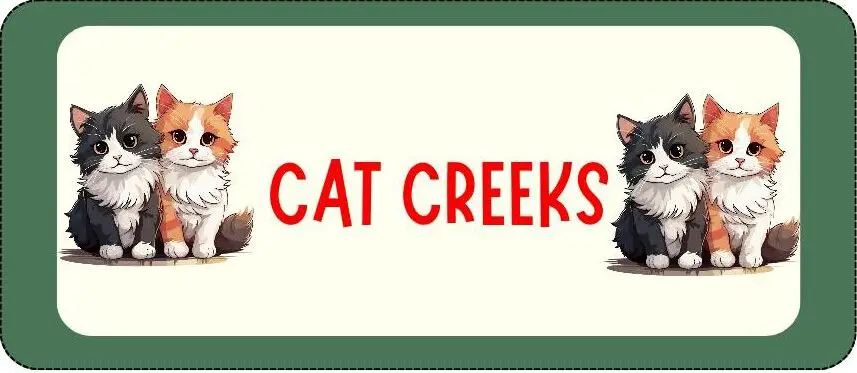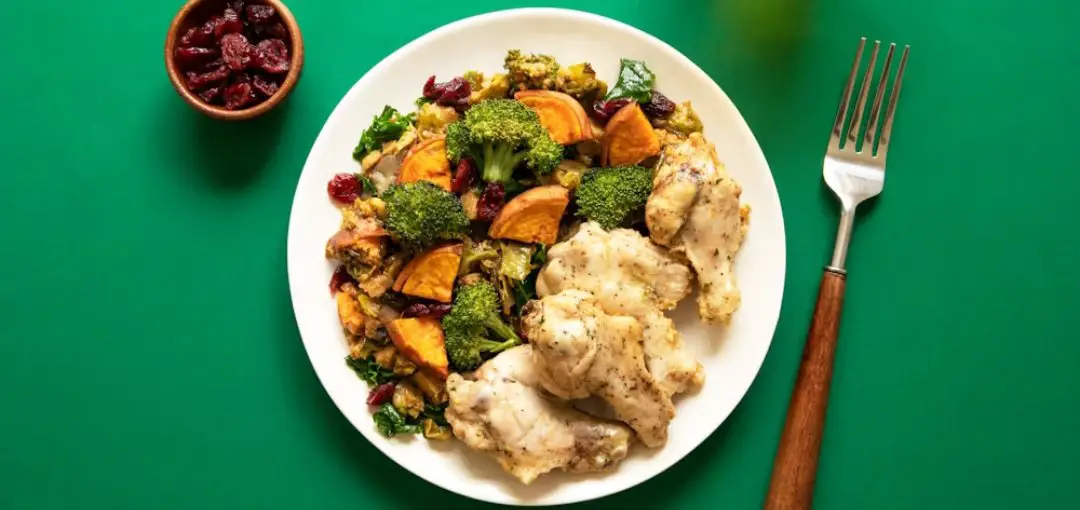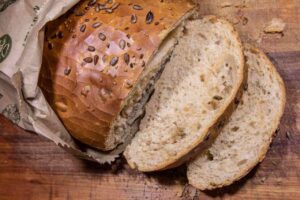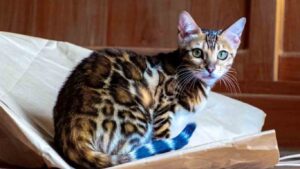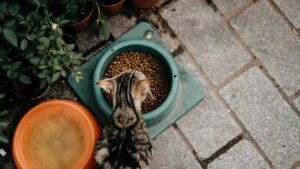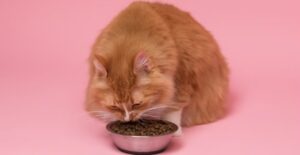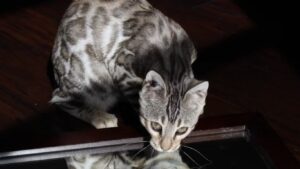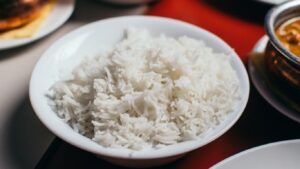With this post, I’m calling on all Bengal cat owners in search of human tasty treats for their Bengal cat to see this!
If you’ve ever wondered, “What human food is safe for my Bengal cat?”, you’ve come to the right place.
Join me on this Bengal cat culinary journey as we uncover the balance of nutritious and enticing options that will leave your Bengal cat begging for more.
What Human Food Can I Feed My Bengal Cat
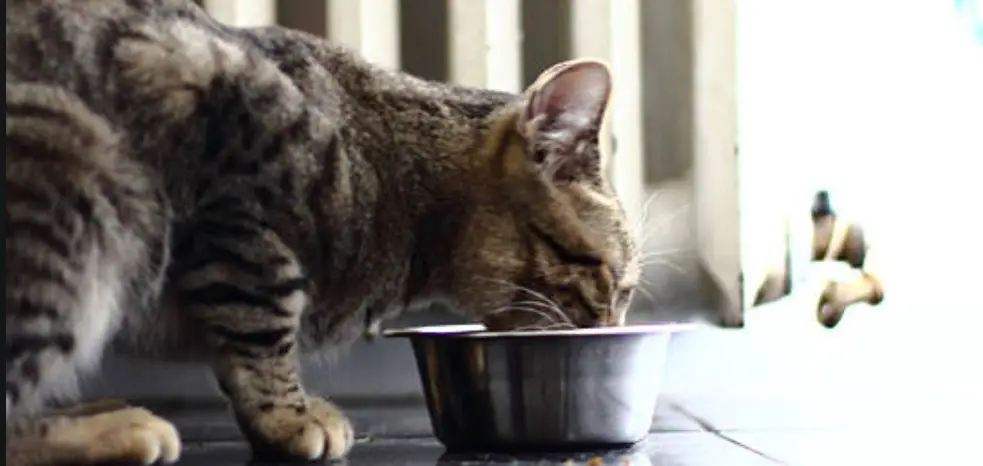
After a long chat with my friends who own Bengal cats, I was able to come up with a list of human food that they have given to their Bengal cat at some point.
I don’t want to go into the issue of feeding raw meat to your Bengal cat, because most people do it so that I will stick to plain cooked meat. I go into detail about feeding raw meat in another blog post.
Note: At no point should these foods completely replace your high quality cat food, this is because some of these foods does not contain all the nutrients required by Bengal cats.
To cut the long story short, most of these foods should be used as rewards (Treats) in moderation.
That being said, here’s the list of human foods Bengal cats can eat, the benefits of each food and how to offer each food to Bengal cats:
1. Premium Commercial Cat Food
Let’s start with the classic high quality cat food that is usually recommended by veterinarians.
While introducing human foods to a Bengal cat’s diet can provide variety and nutritional benefits.
It’s important to remember that a high-quality commercial cat food specifically formulated for their needs should remain the foundation of their diet.
Premium commercial cat foods are designed to meet all the necessary nutritional requirements of cats, including the right balance of protein, fat, and carbohydrates.
They also contain essential vitamins, minerals, and taurine, an amino acid vital for feline health.
Consult with your veterinarian to select the best commercial cat food brand for your Bengal cat, based on their age, weight, and any specific dietary needs.
2. Cooked Plain and Boneless Chicken
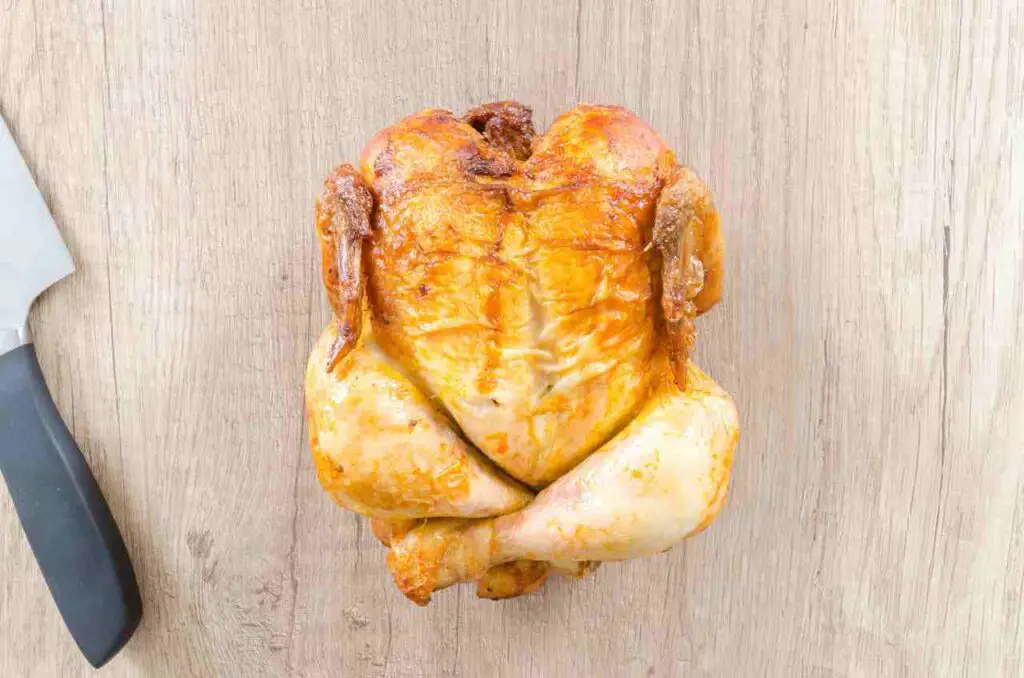
Chicken is a popular choice among Bengal cat owners due to its mild flavor and high protein content.
Before serving chicken to your Bengal cat, it’s crucial to ensure that it’s thoroughly cooked and boneless.
Undercooked chicken can carry harmful bacteria and pose a health risk to your feline friend.
To prepare it, follow these simple steps:
- Start by selecting boneless chicken breasts or thighs. Remove any skin, as it can be difficult for cats to digest.
- Cook the chicken thoroughly by boiling, baking, or grilling it until it reaches an internal temperature of 165°F (74°C). Avoid using any seasoning, spices, or oils.
- Allow the chicken to cool completely before serving it to your Bengal cat.
- Cut the cooked chicken into small, bite-sized pieces to make it easier for your cat to eat and digest.
3. Cooked Plain and Boneless Turkey
Turkey is another lean and protein-rich meat that can be included in your Bengal cat’s diet.
The preparation process for turkey is similar to that of chicken:
- Choose boneless turkey breast or thigh meat. Remove the skin and any visible fat.
- Cook the turkey thoroughly by boiling, baking, or grilling it until it reaches an internal temperature of 165°F (74°C). Avoid seasoning or using any additives.
- Allow the turkey to cool down completely before offering it to your Bengal cat.
- Slice the cooked turkey into small, manageable pieces for your cat to enjoy.
4. Cooked Plain and Boneless Fish
Fish is often a favorite among cats due to its enticing aroma and taste. However, it’s important to note that not all fish are safe for feline consumption.
Stick to boneless fish options such as cod, haddock, or salmon, and follow these steps to prepare it:
- Choose a boneless fish fillet and ensure it’s free from any seasoning, spices, or added oils.
- Cook the fish by poaching, baking, or steaming it until it’s fully cooked and flakes easily. Make sure there are no residual bones.
- Let the fish cool down completely. Remove any skin and break it into small, cat-friendly portions.
- Serve the cooked fish to your Bengal cat, observing their response and ensuring they eat it without any issues.
5. Cooked Plain and Boneless Beef
Beef can be a suitable occasional addition to your Bengal cat’s diet, providing an extra source of protein.
Here’s how you can prepare it:
- Opt for lean cuts of beef such as sirloin or tenderloin. Trim away any visible fat or connective tissue.
- Cook the beef thoroughly by grilling, roasting, or boiling it until it’s well done. Avoid using any seasoning, spices, or sauces.
- Allow the beef to cool completely before serving it to your Bengal cat. Cut it into small, manageable pieces.
- Offer the cooked beef to your feline friend and observe their response to ensure they tolerate it well.
6. Cooked Eggs
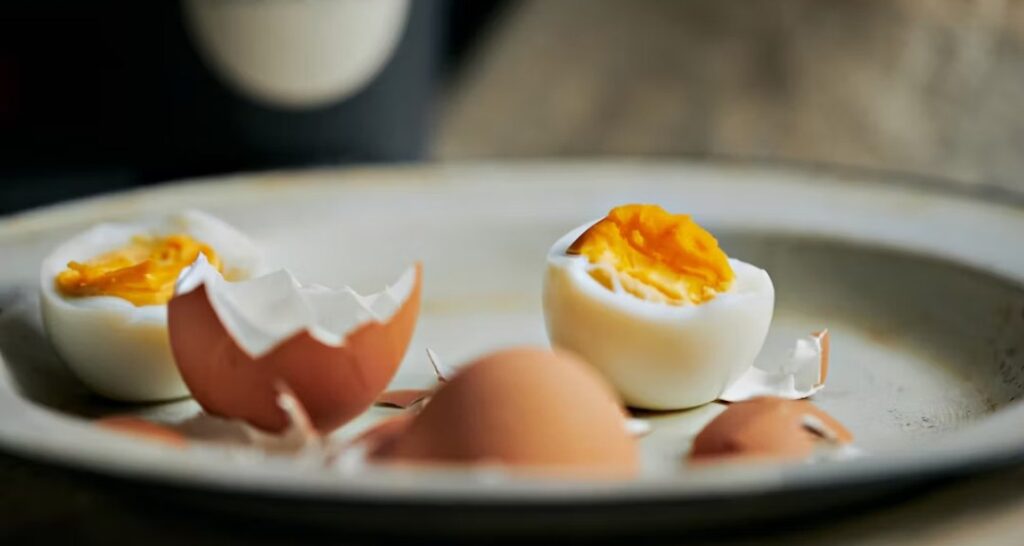
Eggs can be served raw or cooked, but for this post we will stick with cooked.
Cooked eggs can be a nutritious addition to a Bengal cat’s diet. Eggs are an excellent source of protein and contain essential vitamins and minerals.
They provide a balanced amino acid profile, aiding in muscle development and maintenance.
To prepare eggs for your Bengal cat, start by boiling or poaching an egg until it is fully cooked.
Avoid using any seasoning or additives. Allow the egg to cool before serving it to your Bengal cat.
You can mash the egg or cut it into small, easily manageable pieces, you can also mix it with your Bengal cat food.
Keep in mind that this is not something you should do on a daily basis.
Here’s a detailed article about feeding cooked eggs to Bengal cats.
7. Cooked Plain and Boneless Rabbit
Cooked plain and boneless rabbit is another food option that can be suitable for Bengal cats.
Rabbit meat is lean and contains high-quality protein, making it a valuable addition to their diet. It also provides essential vitamins, such as B vitamins and minerals like iron.
When preparing rabbit meat for your Bengal cat, ensure it is thoroughly cooked to eliminate any potential parasites or bacteria, don’t add any seasoning.
Remove all bones before serving it to your cat, as bones can pose a choking hazard. Cut the rabbit meat into small, easily digestible portions.
8. Cooked Plain Sweet Potatoes
Sweet potatoes can offer Bengal cats a nutritious and tasty treat. They are a good source of dietary fiber, which can aid in digestion and prevent constipation.
Sweet potatoes also contain vitamins A and C, as well as other beneficial antioxidants.
To prepare this food for your Bengal cat, cook a sweet potato by baking or boiling it until it becomes soft.
Allow it to cool, then remove the skin and mash the flesh. Serve a small portion of mashed sweet potato as an occasional treat, alongside their regular cat food.
9. Cooked or Raw Carrots
Carrots are a nutritious vegetable that can be a healthy addition to your Bengal cat’s diet.
They are low in calories and rich in essential nutrients such as vitamin A, vitamin K, and fiber.
Carrots also contain antioxidants, which can support your cat’s immune system and promote good vision.
To prepare carrots for your Bengal cat, wash them thoroughly and cut them into small, bite-sized pieces.
You can either cook them by boiling or steam them until they become soft, or you can offer them raw.
However, cooked carrots are generally easier for cats to digest. Remember to avoid using any seasoning or additives, as certain spices or flavorings can be harmful to cats.
When serving cooked or raw carrots to your Bengal cat, start by offering a small portion to see if they show interest and tolerate the vegetable well.
If your Bengal cat enjoys carrots, you can incorporate them into their meal by mixing a few pieces with their regular cat food.
Keep in mind that carrots should only be given as an occasional treat and not as a substitute for a complete and balanced cat diet.
10. Plain Cooked Pasta
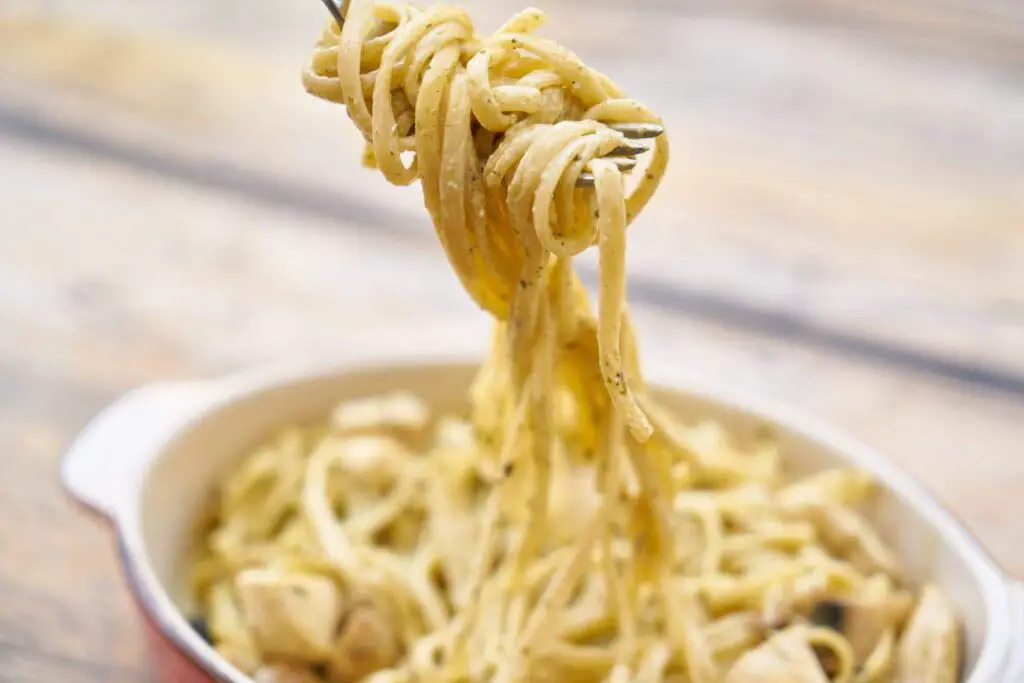
Plain cooked pasta can be a safe and enjoyable treat for your Bengal cat. It is easy to digest and provides some additional carbohydrates to their diet.
However, it’s important to note that pasta should only be given in small quantities and should not replace their main cat food.
To prepare pasta for your Bengal cat, cook it according to the package instructions, ensuring it is plain and free from any sauces or seasonings.
Cook the pasta until it is tender but not overly soft. Avoid adding salt or any other seasoning, as excessive sodium can be harmful to cats.
Once the pasta is cooked, let it cool down and cut it into small, bite-sized pieces suitable for your Bengal cat.
You can offer a few pieces as an occasional treat or mix them with their regular cat food to add some variety.
Remember to monitor your cat’s reaction and ensure they tolerate the pasta well. If you notice any digestive issues or discomfort, discontinue feeding pasta to your cat.
11. Plain Cooked Rice
Plain cooked rice can be a gentle and easily digestible food option for Bengal cats, especially when they have an upset stomach or digestive issues.
It can provide some relief by helping to firm up their stools.
To prepare rice for your Bengal cat, cook it according to the package instructions, using plain white rice.
Avoid adding any seasonings, oils, or spices. Cook the rice until it is soft and fully cooked. Once cooked, let it cool down before serving it to your cat.
Before offering rice to your Bengal cat, ensure that it has cooled down to room temperature, as cats can be sensitive to hot foods.
Serve a small portion of plain cooked rice and observe how your Bengal cat responds to it.
If they enjoy it and tolerate it well, you can incorporate it into their meals by mixing a small amount with their regular cat food.
However, remember that rice should only be given in moderation and should not replace a nutritionally complete cat diet.
12. Plain Oatmeal
Plain oatmeal can be a healthy and fiber-rich addition to your Bengal cat’s diet. It can provide them with some extra nutrients, such as iron and B vitamins.
Oatmeal is also beneficial for cats with hairball issues, as the fiber content can help in the natural passage of hairballs.
To prepare oatmeal for your Bengal cat, cook it according to the package instructions, using plain, unflavored oatmeal.
Avoid using instant oatmeal or any flavored varieties, as they often contain additives and sweeteners that are not suitable for cats.
Once the oatmeal is cooked, let it cool down to room temperature before serving it to your Bengal cat.
Start by offering a small amount to see if your cat enjoys it and tolerates it well. If they do, you can mix a small portion of plain oatmeal with their regular cat food as an occasional treat.
However, it’s important to note that oatmeal should not replace your cat’s main diet and should only be given in moderation.
13. Apples Without Seeds or Core
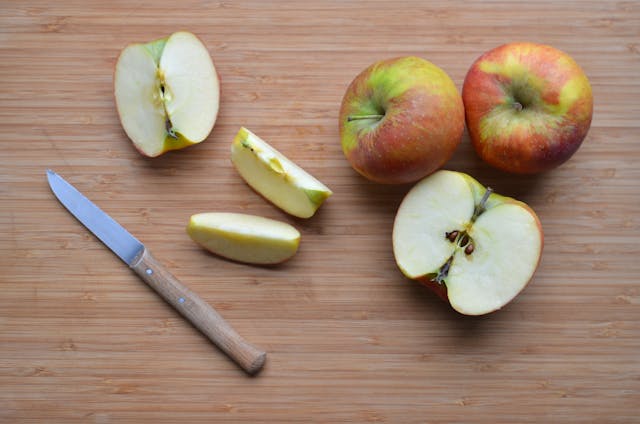
Apples are a delicious and nutritious fruit that can be enjoyed by Bengal cats. However, it’s important to remove the seeds and core before offering them to your feline friend.
Apple seeds contain a compound called amygdalin, which can release cyanide when ingested in large amounts.
Benefits: Apples are a good source of dietary fiber and contain essential vitamins such as vitamin C. The fiber content can help promote healthy digestion in Bengal cats.
Preparation: Start by selecting a ripe apple with a firm texture. Wash the apple thoroughly to remove any pesticides or dirt. Then, carefully remove the seeds and the core, ensuring that no seeds remain.
Serving: Cut the apple into small, bite-sized pieces that are easy for your Bengal cat to consume.
Offer a small portion as a treat or mix it with their regular cat food. Remember to introduce new foods gradually and monitor your cat for any signs of allergies or digestive issues.
14. Watermelon Without Seeds
Watermelon is a refreshing and hydrating fruit that can be a delightful occasional treat for your Bengal cat. However, it’s crucial to remove the seeds before serving it to them.
Benefits: Watermelon is mainly composed of water and is a great source of hydration for cats. It also contains vitamins A and C, which promote a healthy immune system.
Preparation: Choose a ripe watermelon and wash it thoroughly. Cut the watermelon into small, seedless chunks, ensuring there are no seeds left.
Serving: Offer a small piece of seedless watermelon to your Bengal cat as a treat. Remember that watermelon should be given in moderation and not as a substitute for their regular cat food.
15. Plain Pumpkin
Plain pumpkin, specifically canned pure pumpkin without any additives or spices, can be a beneficial addition to a Bengal cat’s diet.
Make sure it’s plain pumpkin and not pumpkin pie filling, which often contains added sugars and spices.
Benefits: Pumpkin is rich in fiber and can aid in promoting healthy digestion in cats. It can also help regulate bowel movements and alleviate constipation.
Preparation: Look for canned pure pumpkin in your local grocery store. Ensure that it does not contain any added sugars, spices, or artificial ingredients. You can also cook and puree fresh pumpkin as an alternative.
Serving: Start by introducing a small amount of plain pumpkin to your Bengal cat’s diet. Mix it with their regular cat food, gradually increasing the quantity. Monitor your cat’s response and adjust the portion accordingly.
Find out more about how much your Bengal cat should eat per day.
16. Plain Mixed Offal
Mixed offal refers to a variety of organ meats, such as liver, kidney, and heart, that can be included in Bengal cats’ diet. It’s essential to choose high-quality, fresh offal from a trusted source.
Benefits: Organ meats are highly nutritious and contain essential vitamins and minerals. They are rich in protein, which is crucial for muscle development and overall health in cats.
Preparation: Purchase fresh organ meats from a reputable source and handle them with care. Ensure the offal is fresh, free from any unpleasant odor, and intended for pet consumption.
It’s recommended to consult with a veterinarian to determine suitable portion sizes and types of offal for your Bengal cat.
Serving: Cook the organ meats thoroughly by boiling, baking, or lightly frying them without any seasoning or added oils. Allow the offal to cool before serving.
Cut the organ meats into small, cat-sized pieces and offer them as a special treat or mix them with their regular cat food.
Remember, while these foods can be incorporated into your Bengal cat’s diet, they should not replace their primary cat food.
Always consult with a veterinarian before making any significant changes to your Bengal cat’s diet, and monitor their reaction to new foods for any signs of allergies or digestive issues.
Find out more about foods your Bengal cat shouldn’t eat.
Conclusion
So, the next time you’re wondering what human food to share with your Bengal cat, remember to opt for safe and nutritious choices like lean proteins, wholesome veggies, and occasional fruit treats. By incorporating these feline-friendly options into their diet, you’ll not only keep your Bengal satisfied but also strengthen the bond between you and your whiskered companion!
Find out more about why your Bengal cat is not eating.
Questions
Let’s answer some common questions:
Can I give my Bengal cat cooked chicken?
Absolutely! Cooked chicken is a great source of lean protein for your Bengal cat. Just make sure it’s boneless, skinless, and thoroughly cooked to avoid any potential health risks.
Is it safe to feed my Bengal cat fruits like apples or bananas?
Yes, in moderation! Apples and bananas can be a healthy and tasty treat for your Bengal cat. Remember to remove any seeds or pits, and offer small, bite-sized pieces to prevent choking hazards.
Can I share some of my cooked fish with my Bengal cat?
Yes, but be cautious! Cooked fish like salmon or tuna can be given to your Bengal cat occasionally, as long as it’s boneless and free from any seasoning or additives. Remember to avoid excessive consumption, as some fish may contain mercury or other contaminants.
Are there any human foods I should never give to my Bengal cat?
Absolutely! Some human foods, such as chocolate, onions, garlic, and caffeine, can be toxic to cats. It’s best to avoid these altogether to ensure the health and well-being of your Bengal cat.
